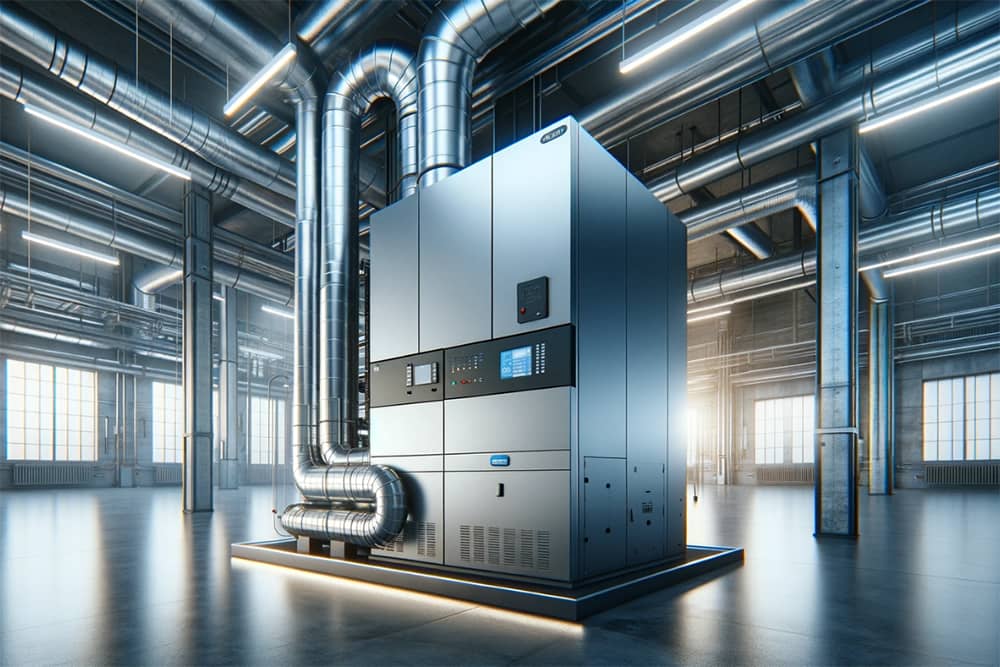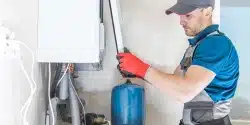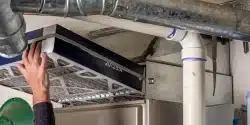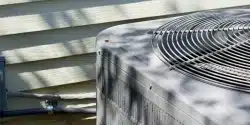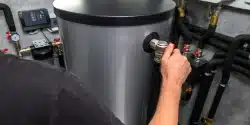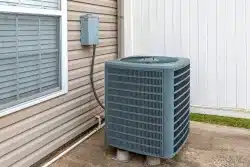Commercial Heating Systems
In the realm of commercial buildings, heating systems are not just a comfort feature but a critical component for maintaining a productive and safe environment. With many options available, selecting the most suitable heating system can be daunting for business owners. This guideline delves into various heating systems, comparing their efficiency, discussing emergency protocols, and providing tips on selecting and safely maintaining furnaces.
Comparing Fireplace and Central Heat Efficiency
Fireplaces in Commercial Settings
Aesthetically pleasing and often associated with luxury, fireplaces in commercial spaces like hotels or restaurants add an element of comfort and charm. However, their efficiency is a contentious topic. Fireplaces typically offer zone heating, warming up specific areas effectively. Yet, they are not renowned for their energy efficiency, often resulting in significant heat loss, especially in open-chamber designs.
Central Heating Systems
On the other hand, central heating offers a more uniform distribution of heat. Efficient in energy use and capable of heating large spaces evenly, major heating systems are a practical choice for most commercial spaces. The key benefits include programmable thermostats for better temperature control and reduced energy consumption, making them a more cost-effective and environmentally friendly option over time.
Efficiency Comparison
In terms of energy efficiency, central heating systems often surpass fireplaces. The controlled and even distribution of heat minimizes energy wastage, a crucial factor in large commercial spaces. Fireplaces might serve more as an aesthetic feature rather than a primary heat source.
Baseboard Heat vs. Central Heat for Commercial Buildings
Baseboard Heating Systems
Baseboard heaters are an alternative heating solution, offering easy installation and minimal maintenance. They operate silently and can provide consistent heat in smaller spaces or individual rooms. However, their efficiency drops in larger areas, making them less suitable for expansive commercial spaces.
Central Heating Systems
Central heating systems, which can heat large areas uniformly and more efficiently, are often the preferred choice for commercial buildings. Their initial installation might be costlier than baseboard systems, but the long-term energy savings and ease of maintenance make them a financially sound option for businesses.
Comparative Analysis
For smaller commercial spaces or individual room heating, baseboard systems might suffice. However, central heating systems are superior for more significant commercial buildings requiring consistent and efficient heating solutions.
Emergency Protocols When the Heat Goes Out
In the event of heating system failures, businesses must have a contingency plan. Essential emergency protocols include:
- Immediate Inspection and Troubleshooting: Quickly identifying the problem can prevent prolonged downtimes.
- Alternative Heating Solutions: Portable heaters can provide temporary relief, but safety is paramount.
- Communication with Occupants: Keeping employees and customers informed about the situation is crucial.
- Professional Assistance: Contacting HVAC professionals for urgent repairs is essential.
Maintaining business operations smoothly during such emergencies requires a well-thought-out plan and prompt action.
Selecting a New Furnace for Your Business
When upgrading a commercial furnace, several factors demand consideration:
- Size and Output: Ensuring the furnace capacity aligns with the building size is essential for efficient heating.
- Energy Efficiency: Higher efficiency furnaces might be more expensive initially but offer long-term savings.
- Type of Furnace: Each type has pros and cons, depending on the building’s needs, from forced air to radiant heat.
- Environmental Impact: Eco-friendly options reduce carbon footprint and can be cost-effective in the long run.
Carefully evaluating these factors ensures a wise investment, contributing to the business’s operational efficiency and environmental responsibility.
Furnace Safety Tips for Commercial Spaces
Furnace safety in commercial spaces is critical beyond mere regulatory compliance; it’s a core responsibility for ensuring a safe and efficient working environment. Here’s a detailed look at the comprehensive safety measures that should be adopted:
Regular Maintenance and Inspections
The foundation of furnace safety lies in routine checks and maintenance. This includes scrutinizing the heat exchanger for any signs of cracks, ensuring furnace filters are clean and intact, and verifying the proper functioning of the blower motor. Regular maintenance is pivotal in identifying and resolving minor issues before they escalate into larger, potentially hazardous problems.
Professional HVAC Servicing
To ensure the utmost safety and efficiency of a furnace, certified HVAC professionals must have it serviced annually or bi-annually. These experts possess the skills to perform in-depth inspections and maintenance tasks beyond basic checks. Their proficiency is vital in evaluating the furnace’s condition and operational efficiency, ensuring its optimal performance and safety.
Clear Safety Procedures and Staff Training
Educating the staff about furnace safety is paramount. Training sessions should comprehensively cover the essentials of furnace operation, emergency response procedures, and the necessary steps to follow in case of a suspected gas leak or malfunction. Having clear, accessible guidelines for reporting any potential issues can significantly hasten response times and help avert accidents.
Ensuring Proper Ventilation
In commercial settings, where the risk of hazardous gas accumulation, such as carbon monoxide, is higher, proper ventilation becomes a critical safety measure. Regular checks of ventilation systems and ensuring that vents remain unobstructed are vital for maintaining a safe heating environment.
Installing and Testing Carbon Monoxide Detectors
Given the dangerous nature of carbon monoxide – a lethal, colourless, and odourless gas – installing CO detectors near the furnace and throughout the building is crucial. Regular testing and timely battery replacements for these detectors ensure they are consistently functional and can provide early warning in case of CO leakage.
Emergency Shutdown Procedures
All staff must be well-versed in the furnace’s emergency shutdown procedures. Quickly and effectively responding in case of a malfunction is critical to preventing severe accidents or damage.
Compliance with Fire Safety Standards
Adhering to fire safety standards is another crucial aspect of furnace safety. This includes maintaining a clutter-free area around the furnace, devoid of any flammable materials, conducting regular fire safety inspections, and ensuring easy access to functional fire extinguishers near the stove.
Keeping Furnace Areas Clear
The area surrounding the furnace should always be kept clear to facilitate proper ventilation and ensure easy access for maintenance personnel in emergencies.
Updating Old Systems
Older furnace systems may not only be less efficient, but they could also pose a greater safety risk. Periodically evaluating and updating outdated systems is vital to enhancing safety and operational efficiency.
Documentation and Record Keeping
Diligent record-keeping of all maintenance activities, inspections, and repairs is essential. These records are invaluable for future troubleshooting and serve as evidence of compliance with safety regulations.
By implementing and adhering to these safety measures, businesses can markedly diminish the risks associated with commercial furnaces. This proactive stance on furnace safety transcends mere regulatory adherence; it reflects a deep-seated commitment to the well-being and safety of everyone who enters the commercial space.
Working with Kelowna HVAC Experts: Husky Heating and Cooling
Husky Heating and Cooling is a reliable HVAC partner for businesses in Kelowna and nearby areas. With 17 years of experience in the industry, we offer a full range of HVAC services. Our commitment to honesty, professionalism, and exceptional customer service has earned us an excellent reputation. We are fully insured and bonded and take pride in our work. Every new client receives the same high standard of service that has defined our business over the years.
Whether a minor repair or a central installation, Husky Heating and Cooling’s expertise ensures that every HVAC issue is addressed efficiently and effectively, keeping your business comfortable and safe.

